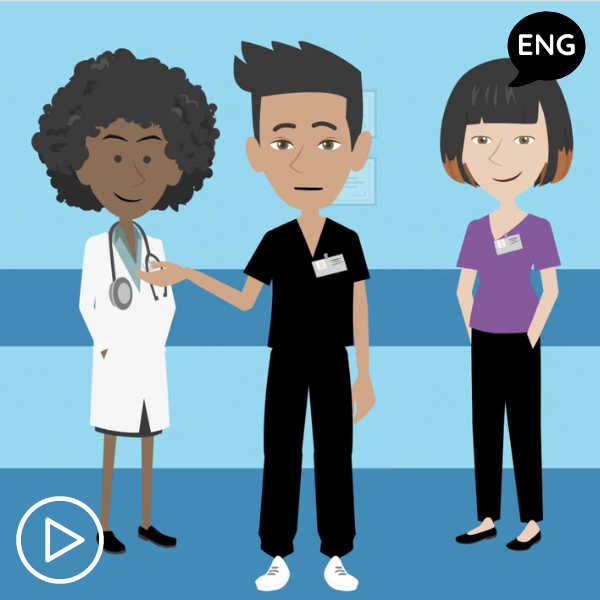Why Should You Participate in Your Cancer Care?
Becoming Empowered: Why Should You Participate in Your Cancer Care? from Patient Empowerment Network on Vimeo.
Transcript:
Isabella:
Hi, I’m Isabella, and I was diagnosed with cancer several years ago. When I was first diagnosed, I was scared and overwhelmed. But do you know what helped? Taking an active role in my treatment decisions and learning to feel and act empowered.
And a big part of this, was my oncology nurse, Kevin. In this video, we’re going to explain what being empowered means and WHY you should feel empowered.
Kevin:
Thanks, Isabella. My team and I are committed to helping people with cancer, but we are just one part of the team. Our patients are on the team as well because we all have an important role to play.
While healthcare providers, like doctors and nurses, are experts about the benefits and risks of different treatment options, YOU are the expert on you. So, it’s best to make decisions together.
Isabella:
Let’s begin by understanding what empowerment is. It basically means that you feel confident in discussing choices that impact your health and comfortable making decisions WITH your healthcare team.
Kevin:
Empowerment works best in an environment that is inclusive, recognizes community and cultural differences, and encourages participation.1 Research also shows that people who take an active role in their health feel in control and participate more in their care.2
Isabella:
That’s right Kevin. But you may be wondering what are some things YOU can do to help yourself feel AND act empowered? Here are some things that really helped me:
- Develop a good relationship with your healthcare team.
- Connect with someone who has gone through a similar cancer experience.
- Educate yourself about your condition by finding credible and easy to understand resources in a format and language you are comfortable with.
- Understand how your care or treatment options may impact your lifestyle and overall health.
- Don’t be nervous to share what is important to you. For example, when my doctor and I were talking about my treatment options, I shared that the most important thing to me was attending and feeling good at my son’s graduation. We worked together so I was able to attend this important event with my family.
Kevin:
Great advice Isabella.
You should also know that empowerment is a skill that can be learned and will improve over time. And empowerment isn’t only important when you have been diagnosed with a serious condition. Beyond your cancer care, you can also be proactive in your overall health by scheduling recommended check-ups and preventative tests like a mammogram and colonoscopy.
Isabella:
I really like the point you made about empowerment not being something you’re born with – you can actually learn to be empowered.
And a good place to start is to simply ask questions. I find it easier to write my questions down for my appointments in advance. That way, I feel prepared when I’m meeting with my healthcare team.
Kevin:
But if it feels hard for you to speak up and to ask questions, you can adapt your own communication style like sending your concerns in writing through your patient portal. I challenge you to find your own unique approach to feeling and acting empowered.
Isabella:
We hope you find your own unique approach that helps you take action toward becoming an empowered patient. You’ve got this!
And don’t forget to review the guide that accompanies this video to help you recall what we covered.
Kevin:
So, what did you learn? Please click this link to access learning questions to test your knowledge.
And be sure to watch the next video in this series to learn tips for collaborating with your healthcare team.
Thanks for joining us!




